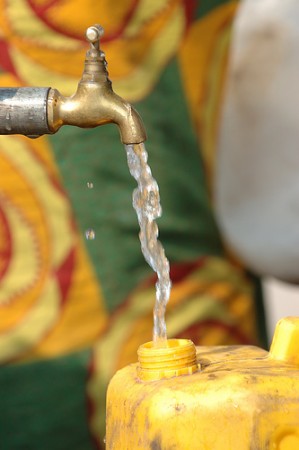
The usual suspects never fail to disappoint. With 122 countries voting in favor and 41 abstaining, the UN General Assembly has recently declared clean water and sanitation as a fundamental human right, a move hailed by water rights activists as a “big step in the right direction.” Although passing with an overwhelming majority, the vote’s abstentions are disconcerting, although, considering the culprits, not surprising.
The usual suspects—United States, Canada, the United Kingdom, Australia, and Israel—attempted to justify their abstentions through unconvincing procedural language. Substantively, they argued that declaring water as a human right has no sufficient legal basis in customary international law. Isn’t that the exact purpose of this declaration, to move in that direction? Before the non-binding Universal Declaration of Human Rights (UDHR) in 1948, most human rights now enshrined in treaty law was also not part of international law. Like the UDHR, the current water rights declaration has the power to fuel the onset of a normative and legal shift focusing on codifying the right to clean water and basic sanitation in enforceable treaty laws. The second argument, of a procedural in character, proposes that the vote would disrupt ongoing water rights negotiations at the Human Rights Council (HRC) in Geneva. Why would the HRC—a 47-member body—be deemed more appropriate a forum than the more democratic and representative 192-member General Assembly? If anything, the current declaration can help guide and even compliment the negotiations in Geneva.
So why abstain from such a seemingly basic declaration? The reasons behind the abstentions easily shine right through the diaphanous arguments. In the neo-liberal capitalist system supported by most of those who abstained, water is seen as a commodity to be sold in the open market; those who can pay can buy it, those who cannot must learn to withstand the thirst. The North American Free Trade Agreement (NAFTA), for example, clearly cites water as a commodity to be sold and taxed like any other good. American companies are buying up water rights in Australia and New Zealand, who have taken major steps towards the privatization of water. And regarding sanitation, the argument can be summed by a senior diplomat in the British government, who stated that the UK “doesn’t want to pay for toilets in Africa.” Plain and simple.
Declaring water and sanitation as a human right introduces a major normative shift, one that goes against privatization. As a human right, water is to be seen as a public, not private, good. Falling short of a “no” vote, the abstentions are still disappointing, as they prove that the road to an enforceable international water treaty is going to be long and dreary. Perhaps the support and leadership of rising powers such as China, Brazil and Russia will prove crucial to convincing the usual suspects that their stubborn self-interest can no longer stand in the way of international water justice.


2 replies on “The Usual Suspects: Abstaining the Water Vote”
Dear Greg,
Thank you for your message. I commend you on your skepticism, but wish to reiterate that my point was not to praise Russia, China or any other country, but rather to state that those who voted in favor were taking a small step in the right direction. The biggest problem with access to clean water is, apart from the actual lack of water, the technical expertise to harness and distribute it. Many suggest privatization as the solution to this, albeit with the trade-off that prices will invariably increase.
Moreover, I did not claim that water rights should be universal; each country should manage and protect their own water systems. It is normal for a Westerner to shudder at the idea of China and Russia playing any sort of moral or political leadership role. However, you must understand that it is actually Western countries that are doing exactly what you fear: buying the rights to access the clean water of the rest of the world. American and European companies purchase the rights to collect water from Southeast Asia, Africa and South America in order to sell as bottled water in their home countries. Making water a human right will allow peoples to exercise true sovereignty over their own water, as well as urge governments, like China and Russia, who lack the necessary financial and technical capabilities, to step up their efforts to invest in water and sanitation by building their national infrastructures.
Thank you,
Albert S. Mulli
China and Russia as potential leaders of international water justice?! These governments can’t even keep their own rivers clean–why should they have the right to the rest of the world’s clean water? So much for rewarding those who are good stewards.